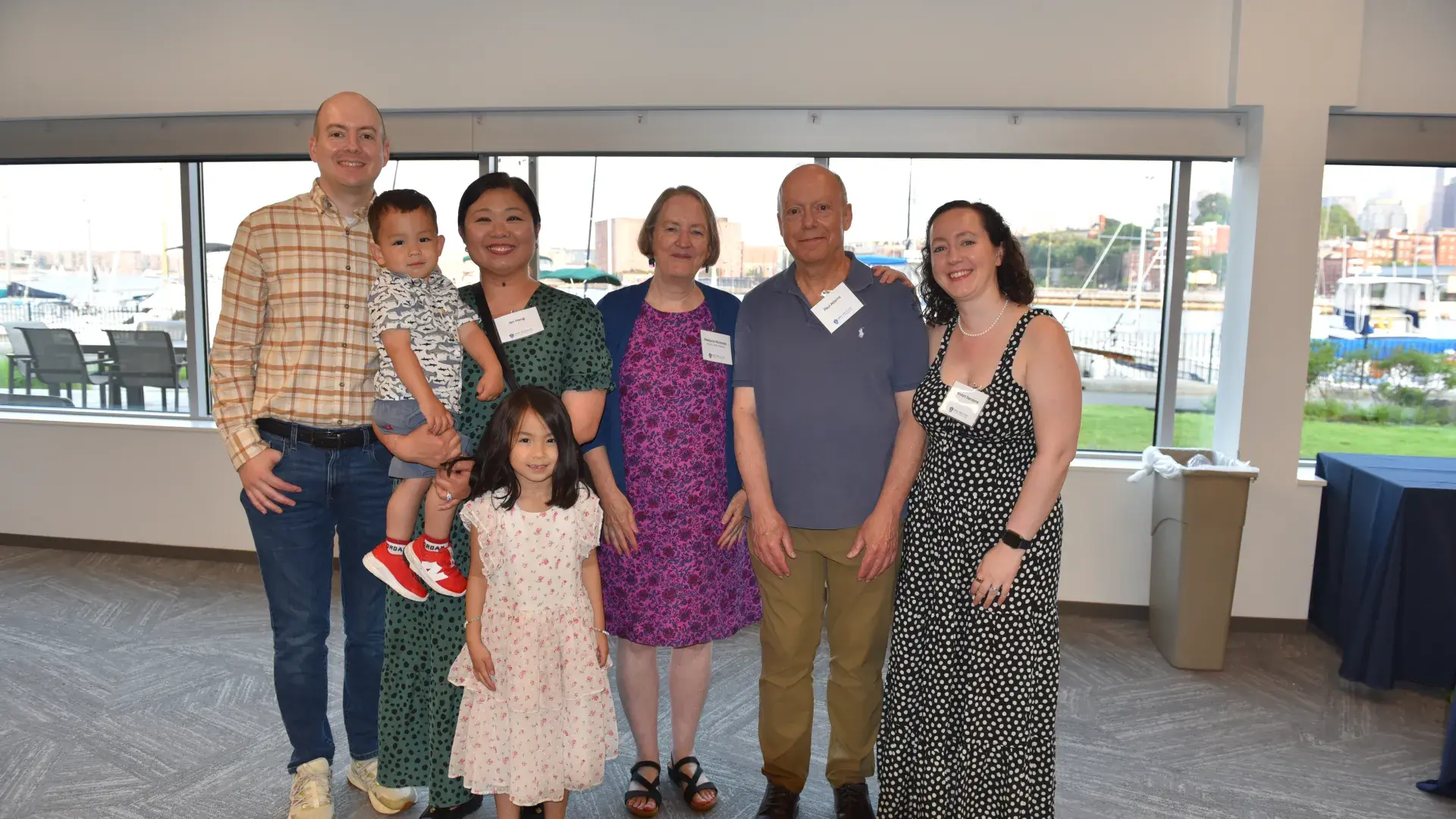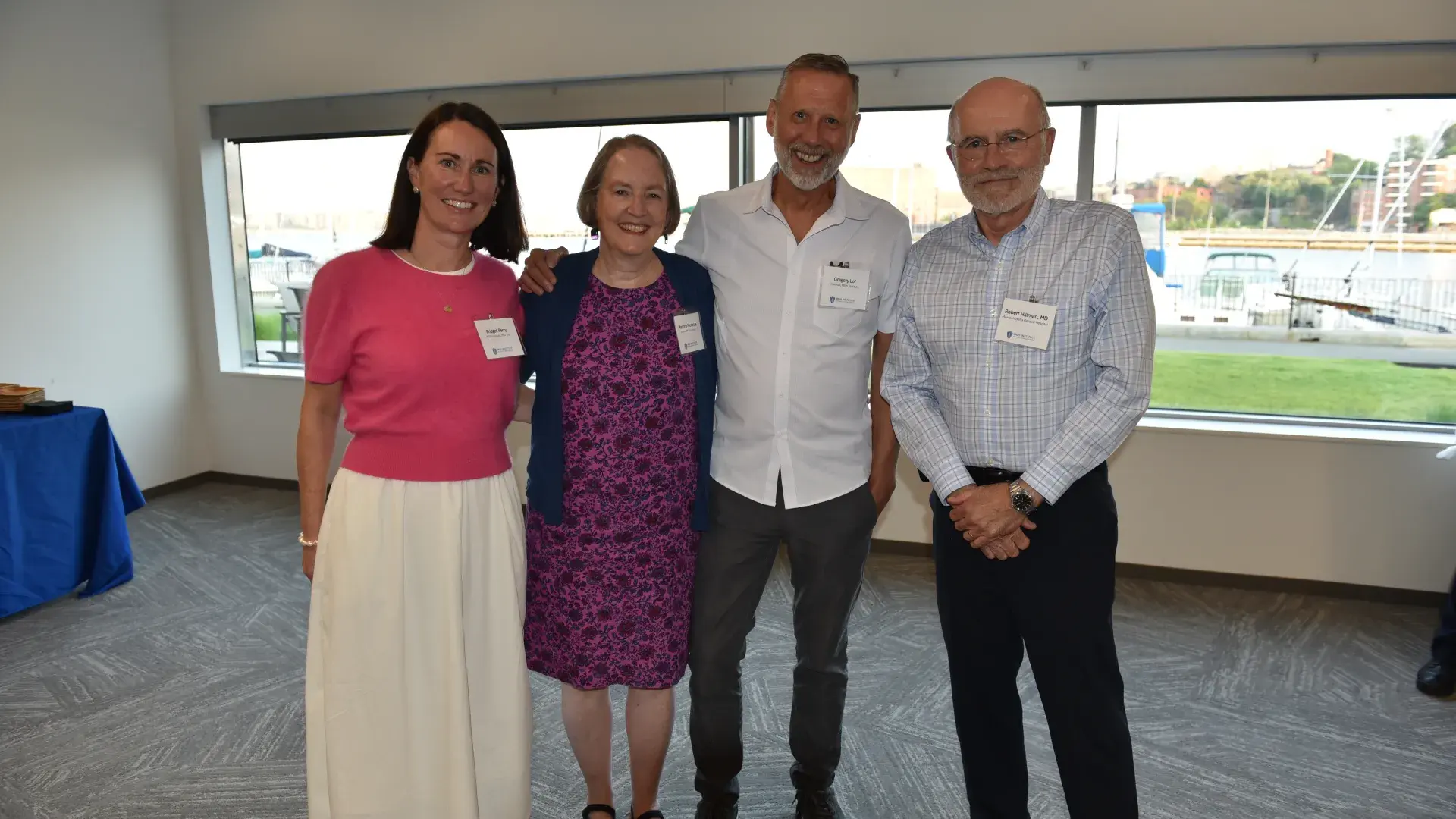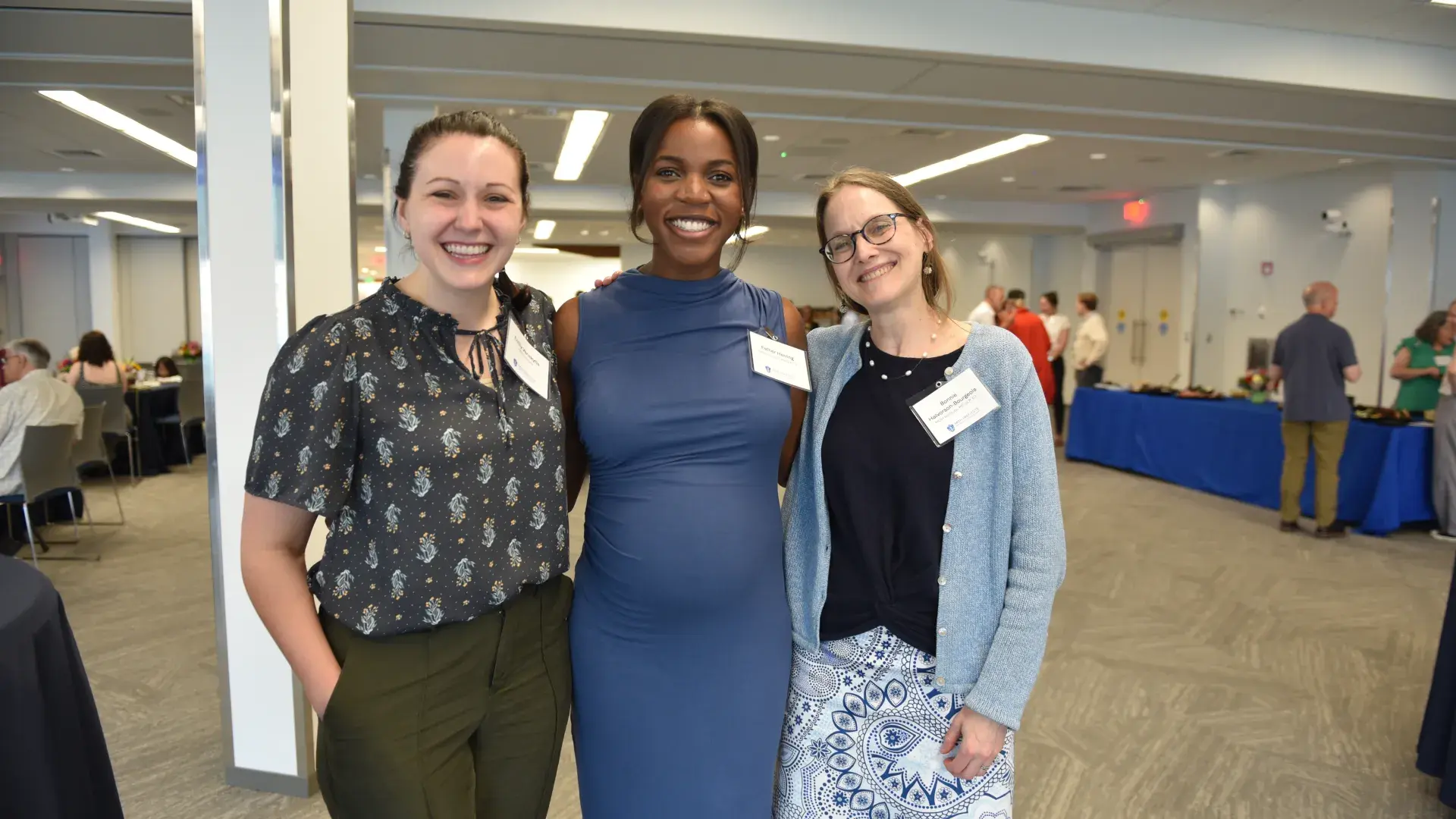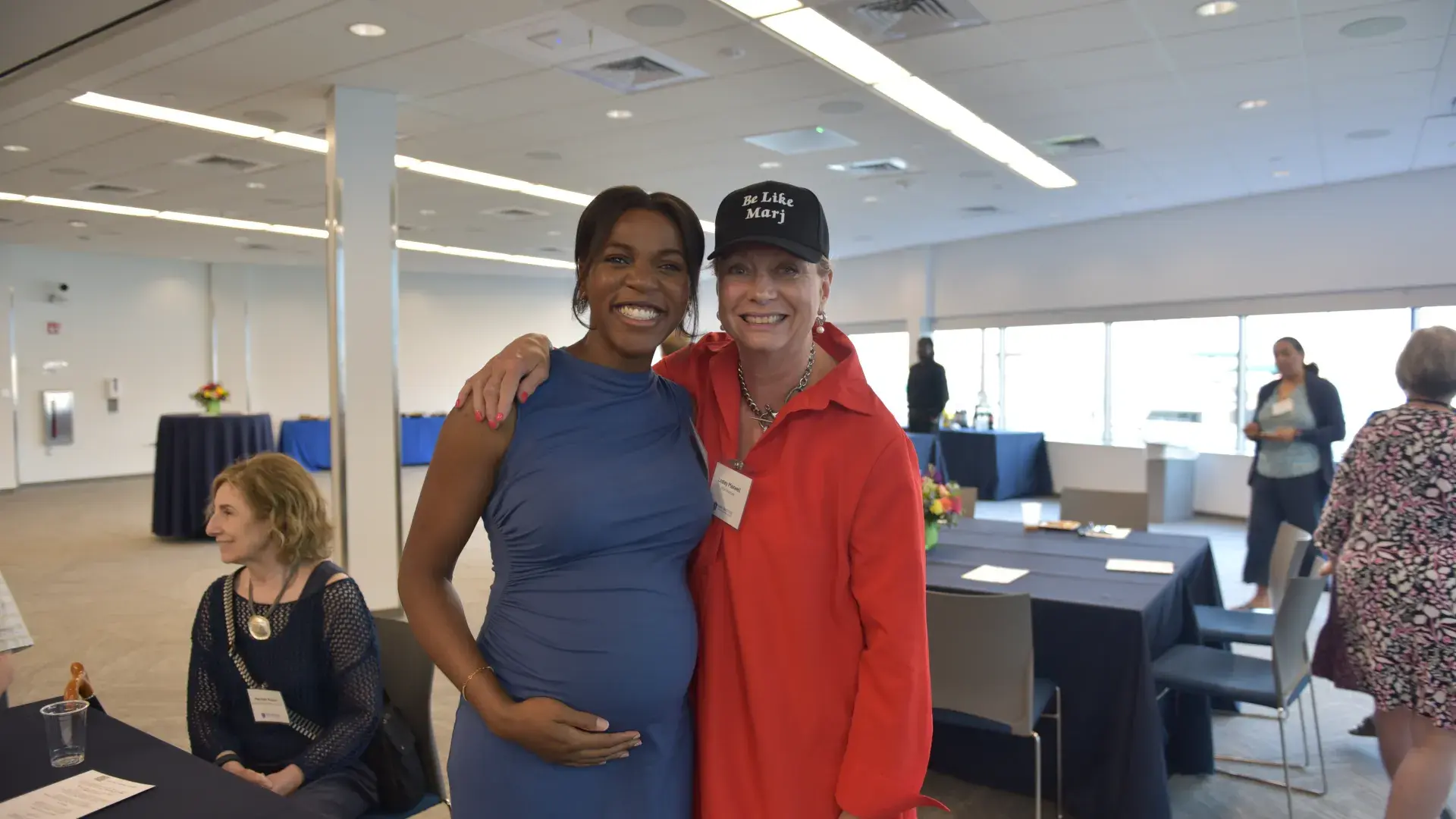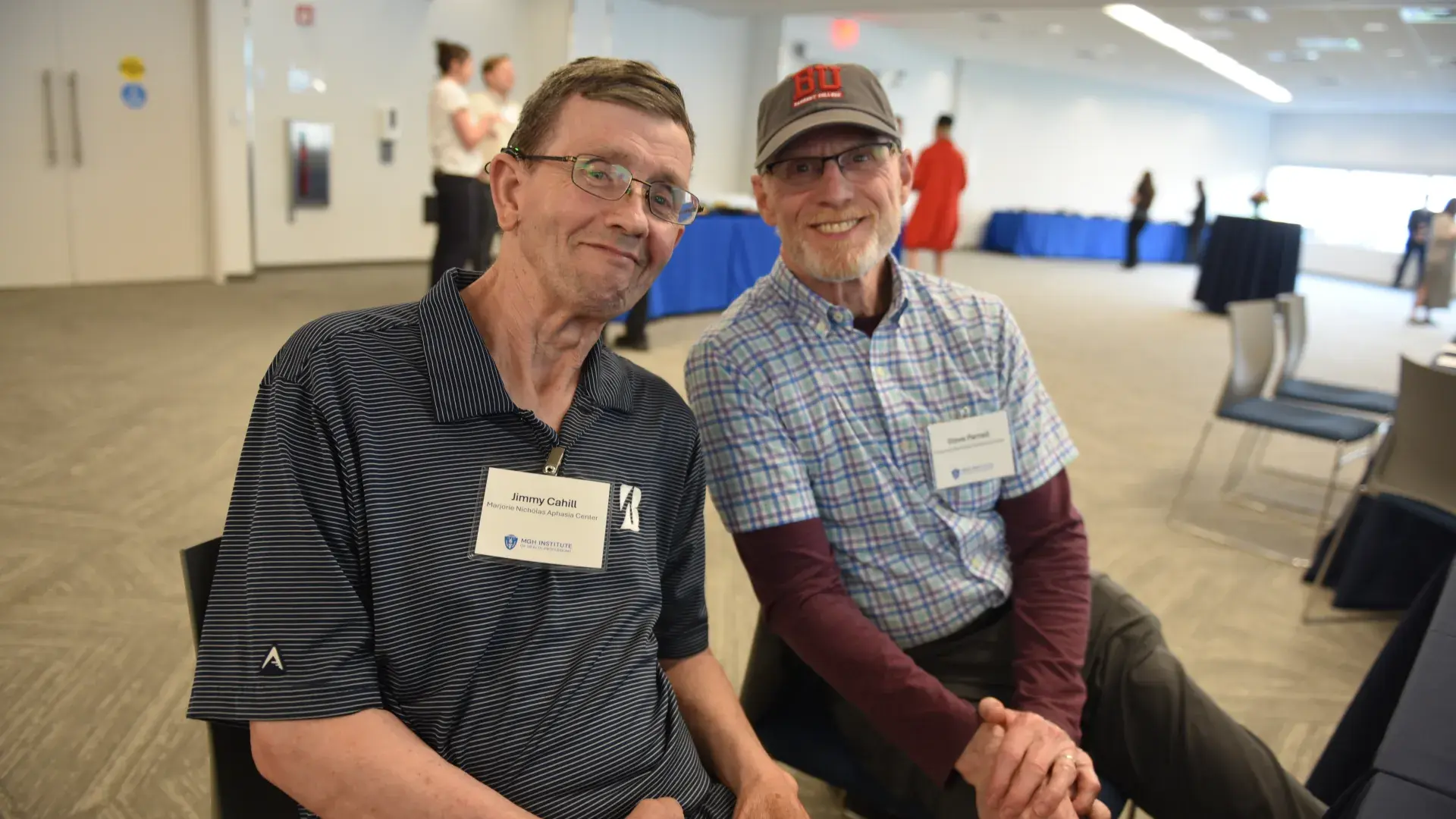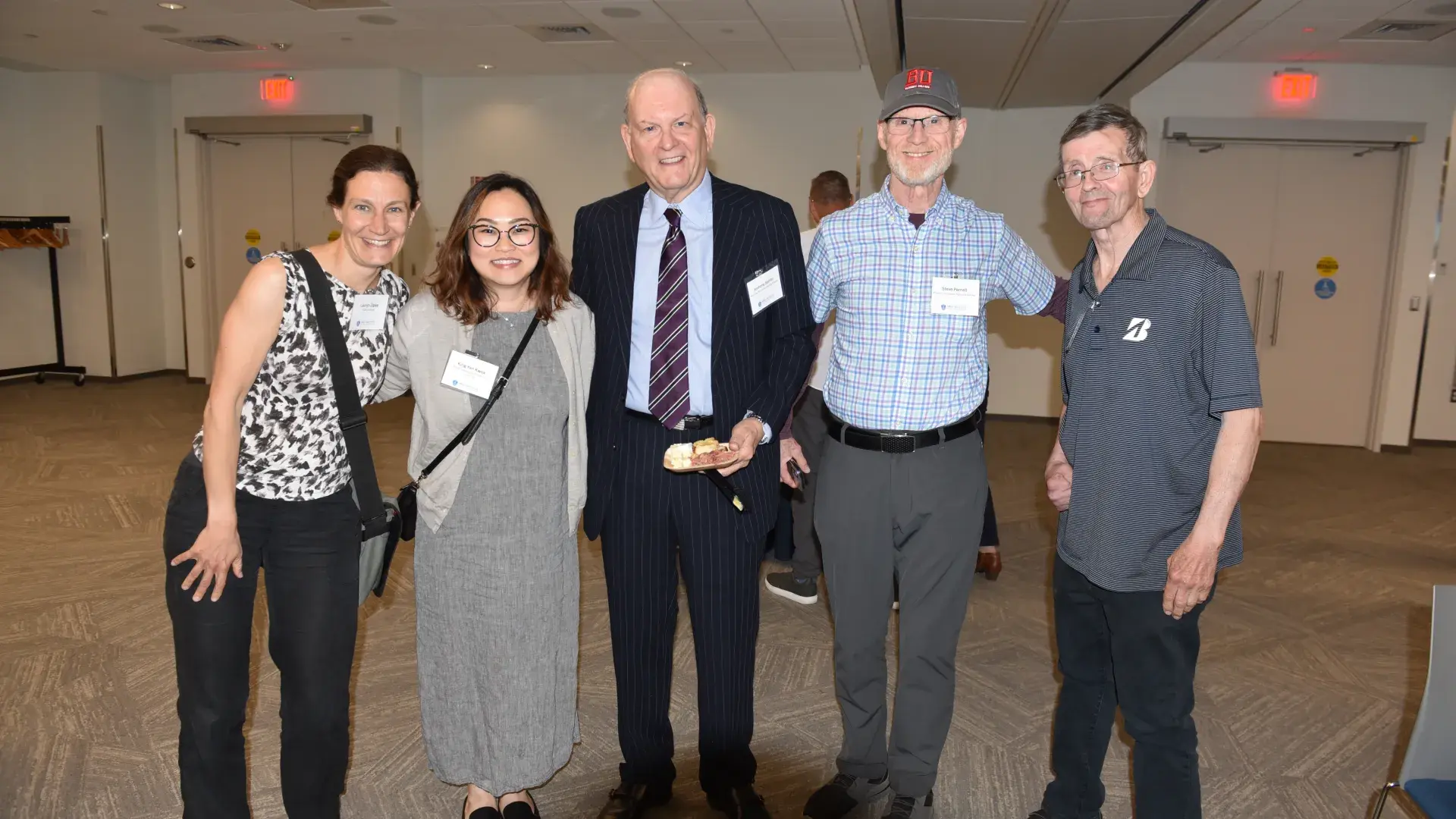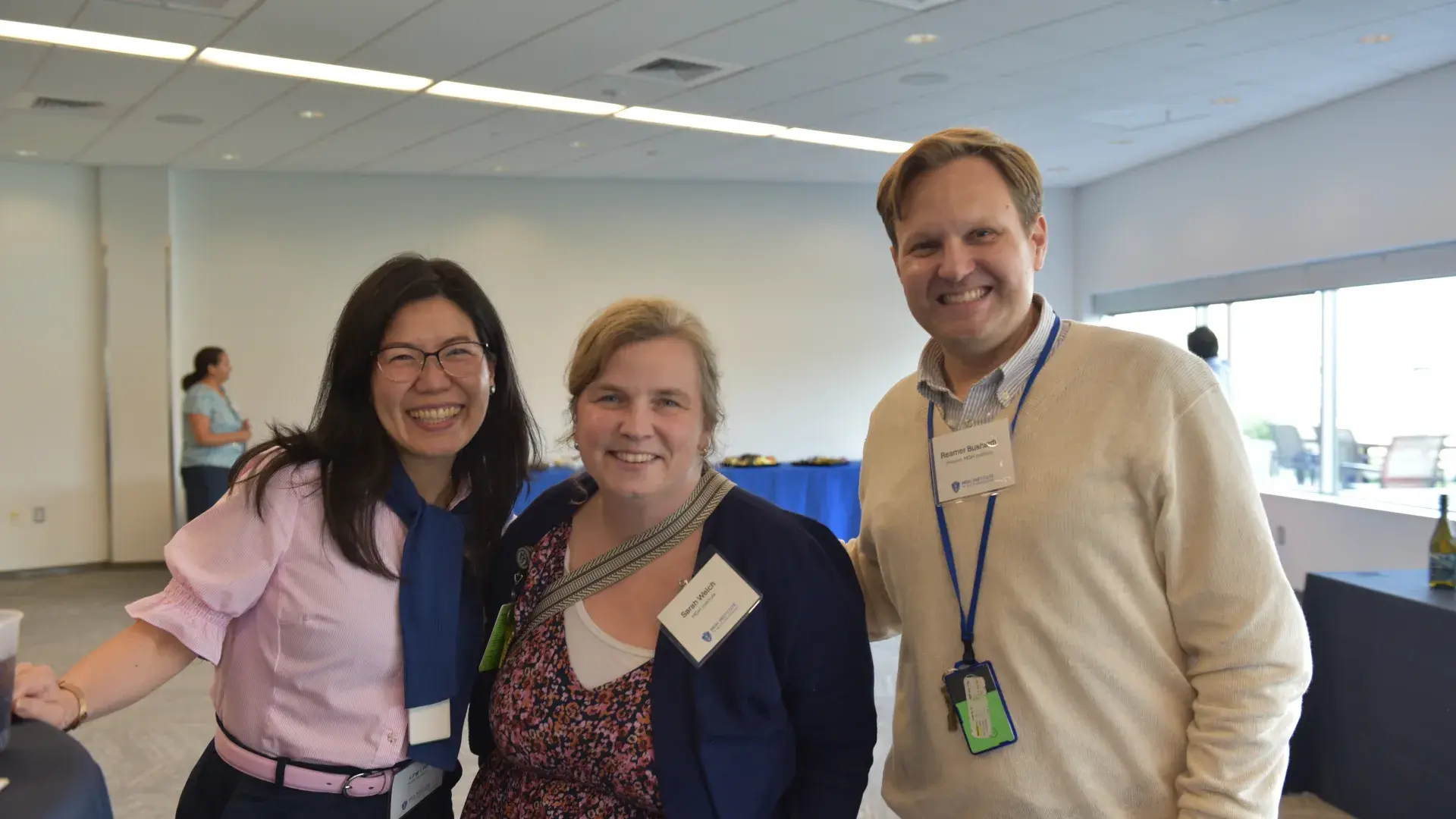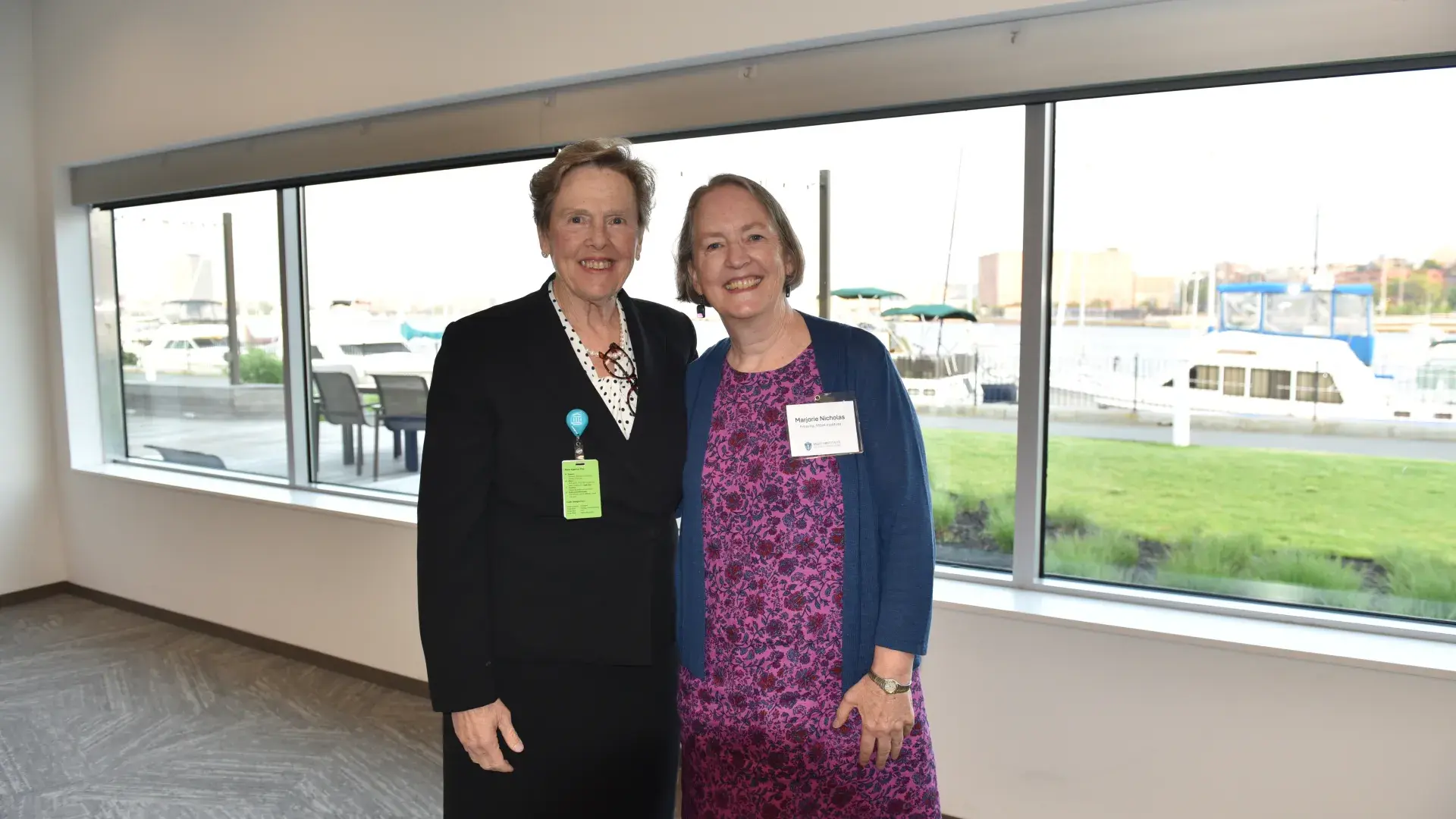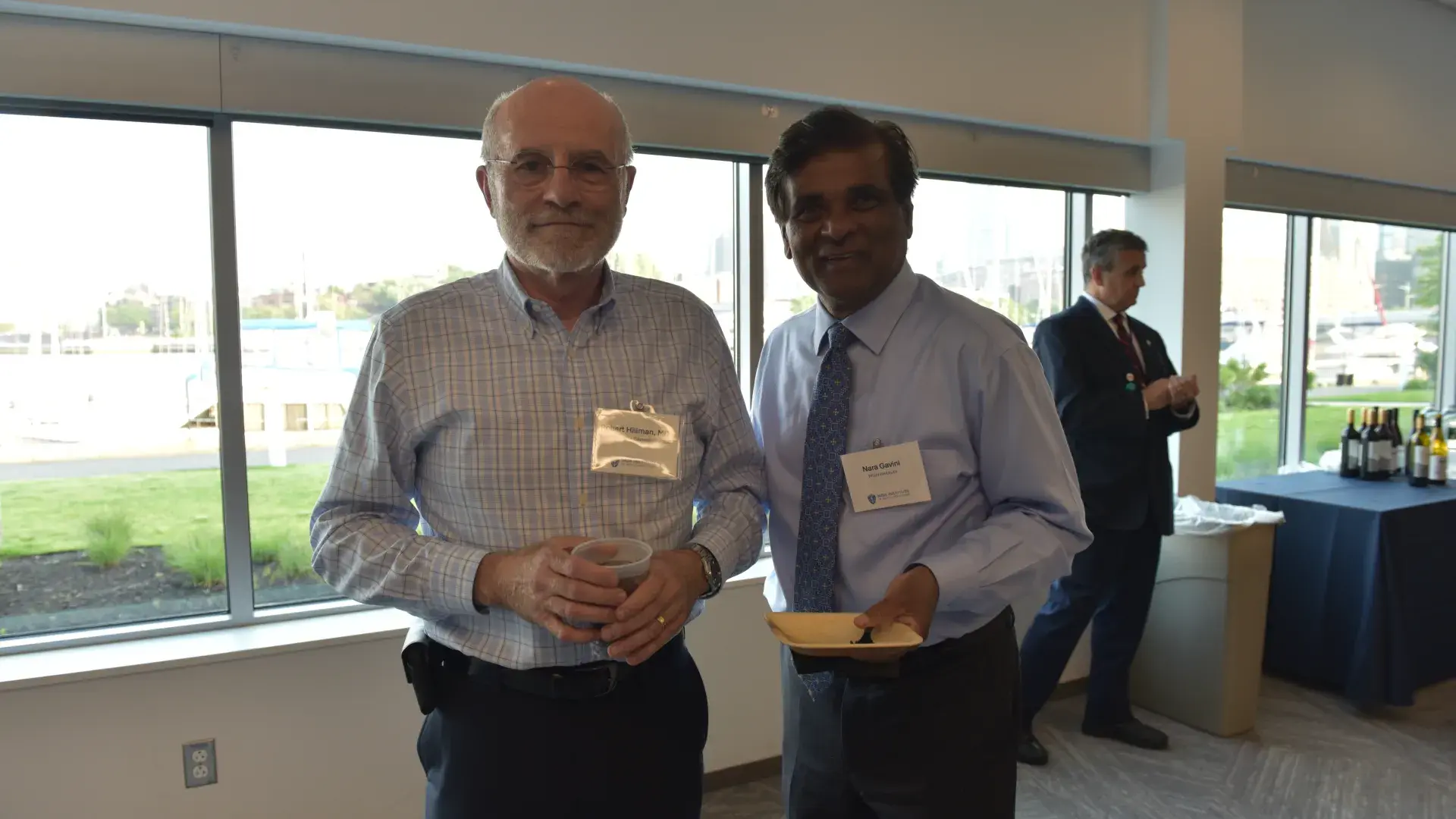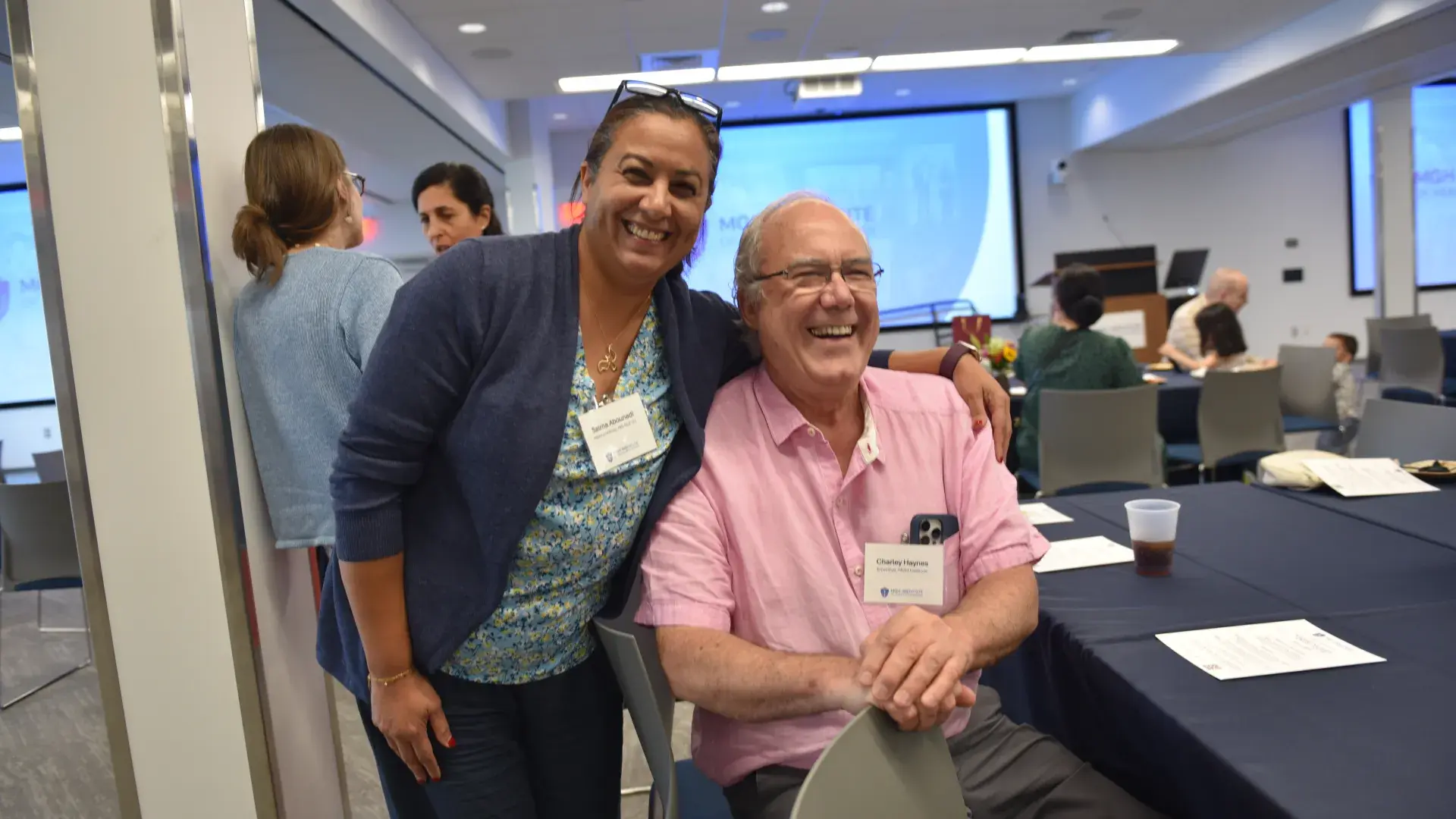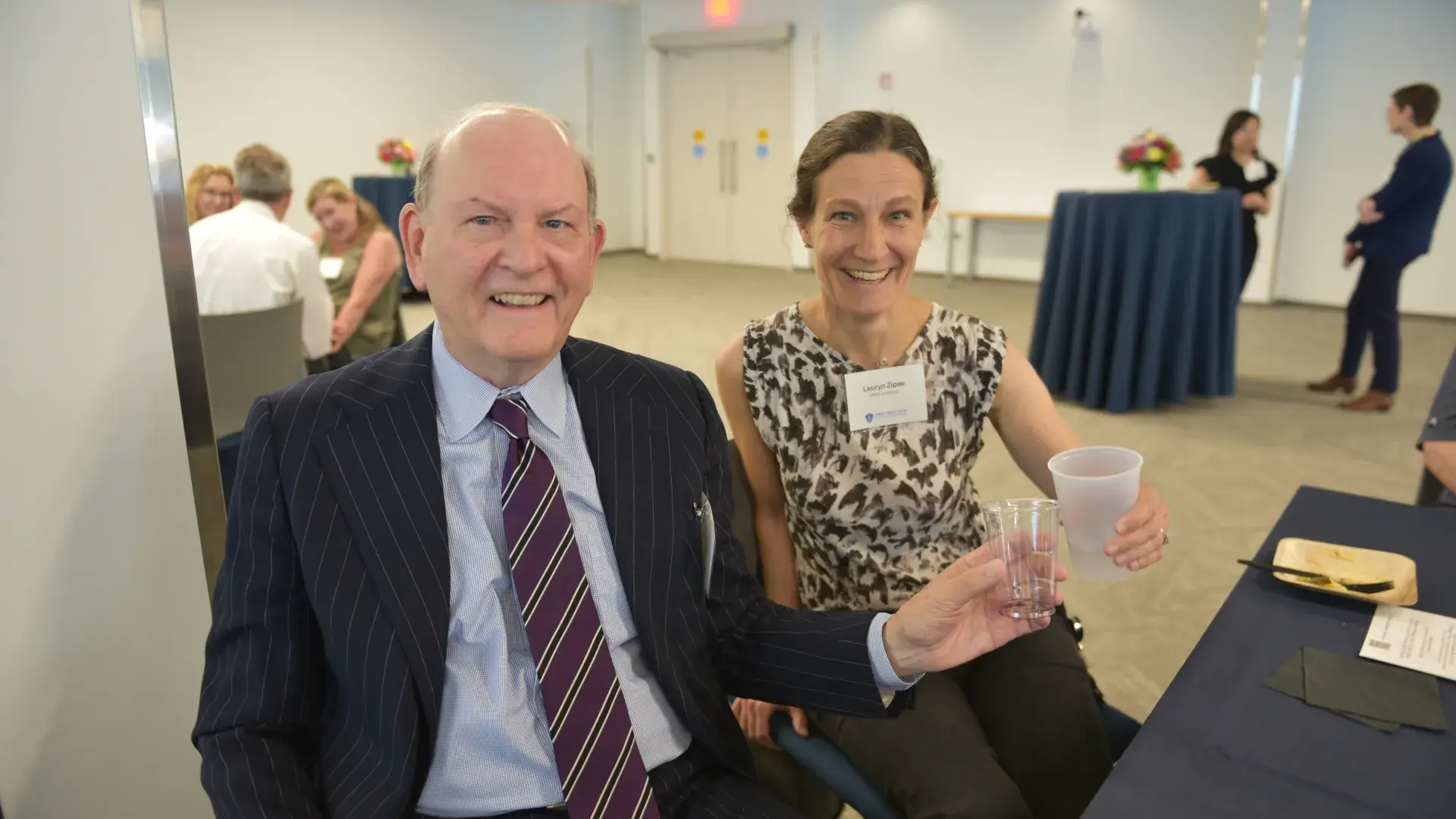
Opening event showcased speech-language pathologist and professor Marjorie Nicholas’ devotion to aphasia awareness and recovery
For over two decades, people with aphasia have turned to the MGH Institute for expert diagnosis and therapy—all thanks to the visionary leadership of Marjorie Nicholas. Last Thursday evening, the MGH Institute’s 1CW Conference Center was filled with a grateful atmosphere. Family, faculty, staff, students, and clients gathered to celebrate the founder of what is now fittingly named the Marjorie Nicholas Aphasia Center.
“When I was asked to speak about Marjorie's legacy tonight, I didn't quite know where to begin,” said Esther Herring, coordinator of the Marjorie Nicholas Aphasia Center, as she opened the sequence of speeches. “How do you fully capture the impact of someone who rarely wants recognition, but whose fingerprints are on every success story, every innovation, and every person in this room?”
The Center, which provides diagnostic and treatment services to adults with aphasia and related communication impairments, has been touched by Nicholas in every aspect. Since starting the Aphasia Center in 2002, Nicholas has dedicated her efforts to serve those with aphasia by training students and faculty members, working one-on-one with clients, and building interprofessional programs and partnerships with other institutions.
“And as if she wasn't busy enough”, said MGH Institute President Dr. Paula Milone-Nuzzo playfully at the celebratory event. “Nicholas has devoted herself to organizing outings for the Center’s clients. She has helped build a community of survivors and caregivers, always developing treatment plans that address the client with a more holistic approach.”
The longtime speech-language pathologist’s approach comes from a place of deep compassion for those affected by the disorder. Nicholas first met people with aphasia during her time at Boston VA Medical Center in Jamaica Plain early in her career.
“I saw how a person with aphasia couldn't find the words when they awoke from their stroke and tried to answer questions from their nurses,” expressed Nicholas as she addressed supporters and friends. “I saw how a person with aphasia had difficulty understanding the words spoken to them by their loved ones. I saw how a person with aphasia was not able to go back to work because they no longer could effortlessly read or write.”
This compassion towards those affected by aphasia is what prompted Nicholas to start the Center, and what has motivated her to continue working with clients even after she retired in 2024.
Tony Spirito, a long-term client of the Aphasia Center, is one of the people whose life has been changed by the Center and its founder. To define Nicholas, he chose one word: dedication.
“In my 18 years as a client of the Aphasia Center, I have witnessed all of these facets of Marjorie’s dedication,” expressed Spirito. “She has always been interested in the person as a person, not just as a client, a student, or a colleague. To students, Marjorie is more than a professor. She is a coach, a mentor, and a cheerleader.”
Marjorie Nicholas Leaves a Legacy
Nicholas, who likes to say she only “helped get things started,” has shaped and grown the Aphasia Center exponentially.
What began with one student working on a couple of her research subjects, eventually grew to have dozens of students work with more than 60 clients each semester. Today, the Center serves over 100 clients each year, offering free speech therapy to adults living with aphasia. More than 480 master students have trained at the Center, gaining clinical experience, and delivering person-centered care that creates meaningful change in people's lives.
“Nicholas’s legacy isn’t just in the numbers,” Herring explained. “She is a catalyst, always more focused on momentum than credit, on creating spaces where things can take root and thrive beyond what any one person could do alone. She's also a connector. Bringing together clinicians, students, researchers, clients, caregivers, community members, in ways that create lasting partnerships.
“She is an advocate, tireless in her efforts to ensure that adults with aphasia are truly not forgotten. She's a lifelong learner. She's unafraid to step into a treatment session or investigate challenging clinical questions and her passion for her work deeply influenced my decision to study here as a master student.”
Words of Gratitude
Meagan Sheffield, executive director of development at the MGH Institute, who helped coordinate the event celebrating the naming of the Marjorie Nicholas Aphasia Center, shared the importance of hosting events like these.
“Marjorie was gracious enough to allow us to showcase her devotion to, and accomplishments in the area of aphasia and educating our future healthcare leaders,” Sheffield shared. “To celebrate Marjorie and to connect her name to something as enduring as the Center and its vital work is an honor for the IHP.”
During her closing remarks, Nicholas emphasized that compassion should always be the foundation and core of the Marjorie Nicholas Aphasia Center.
“I want to express my deep gratitude to the people with aphasia who've passed through our doors and have kept on passing through our doors for more than two decades,” said Nicholas. “We call them clients, but they are really true teachers of our students.
“A famous quote goes, ‘The true measure of any society can be found in how it treats its most vulnerable members.’ This sentiment underscores why I am so honored to have my name attached to the Aphasia Center where compassion is now, and I hope will forever remain at the core of everything we do.”
If you would like to make a gift to support the Aphasia Center endowment in honor of Marjorie, you may do so here.
Do you have a story the Office of Strategic Communications should know about? If so, let us know.
